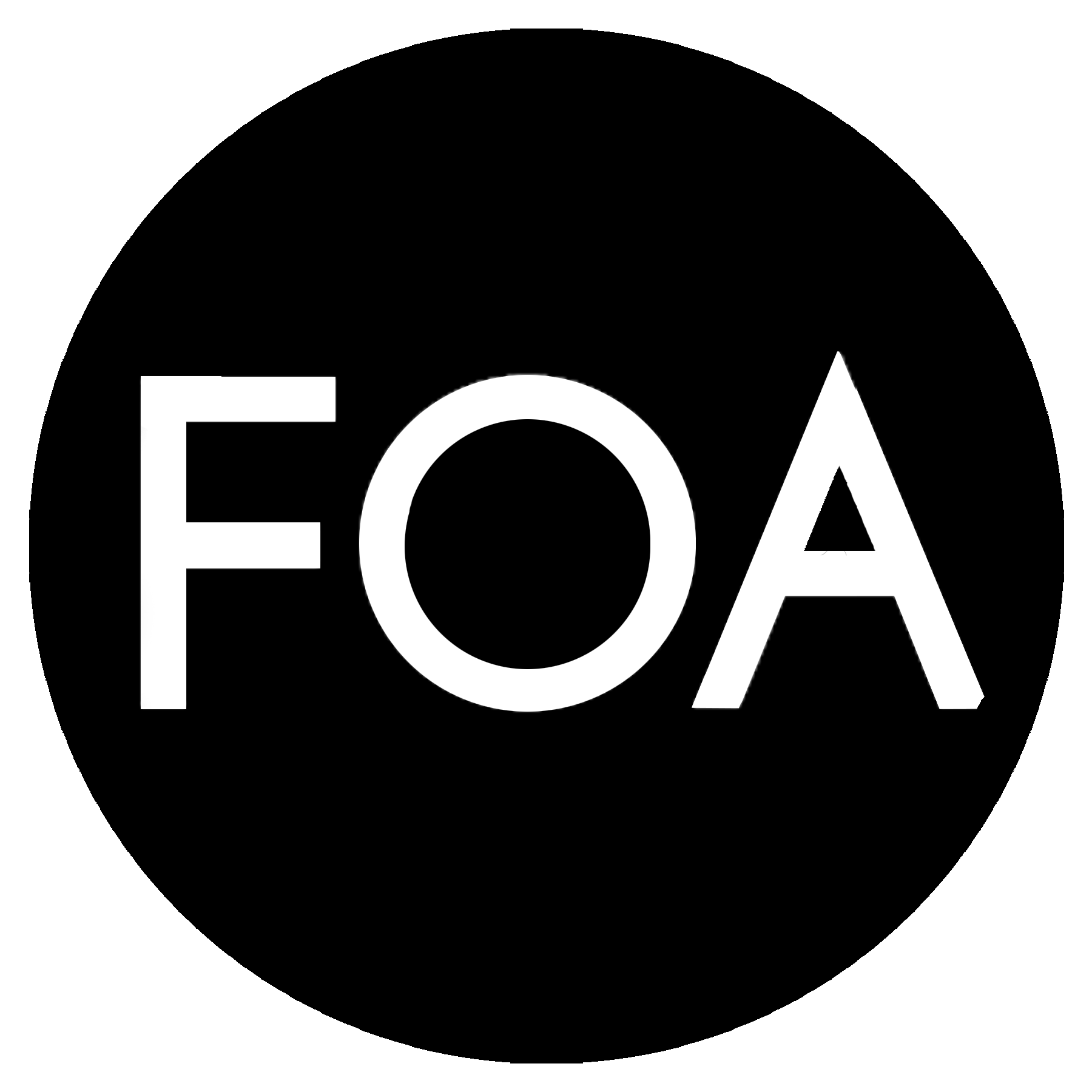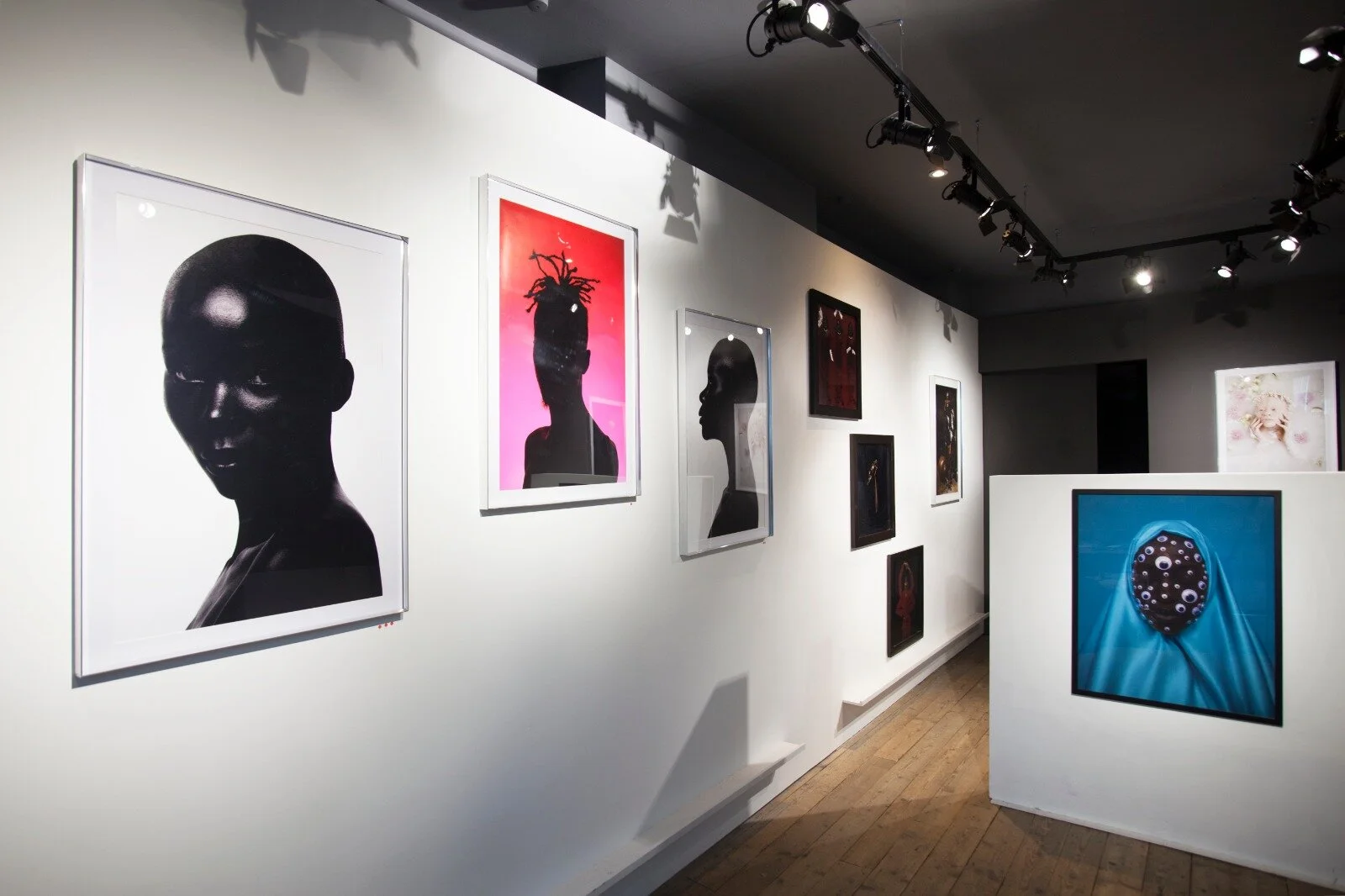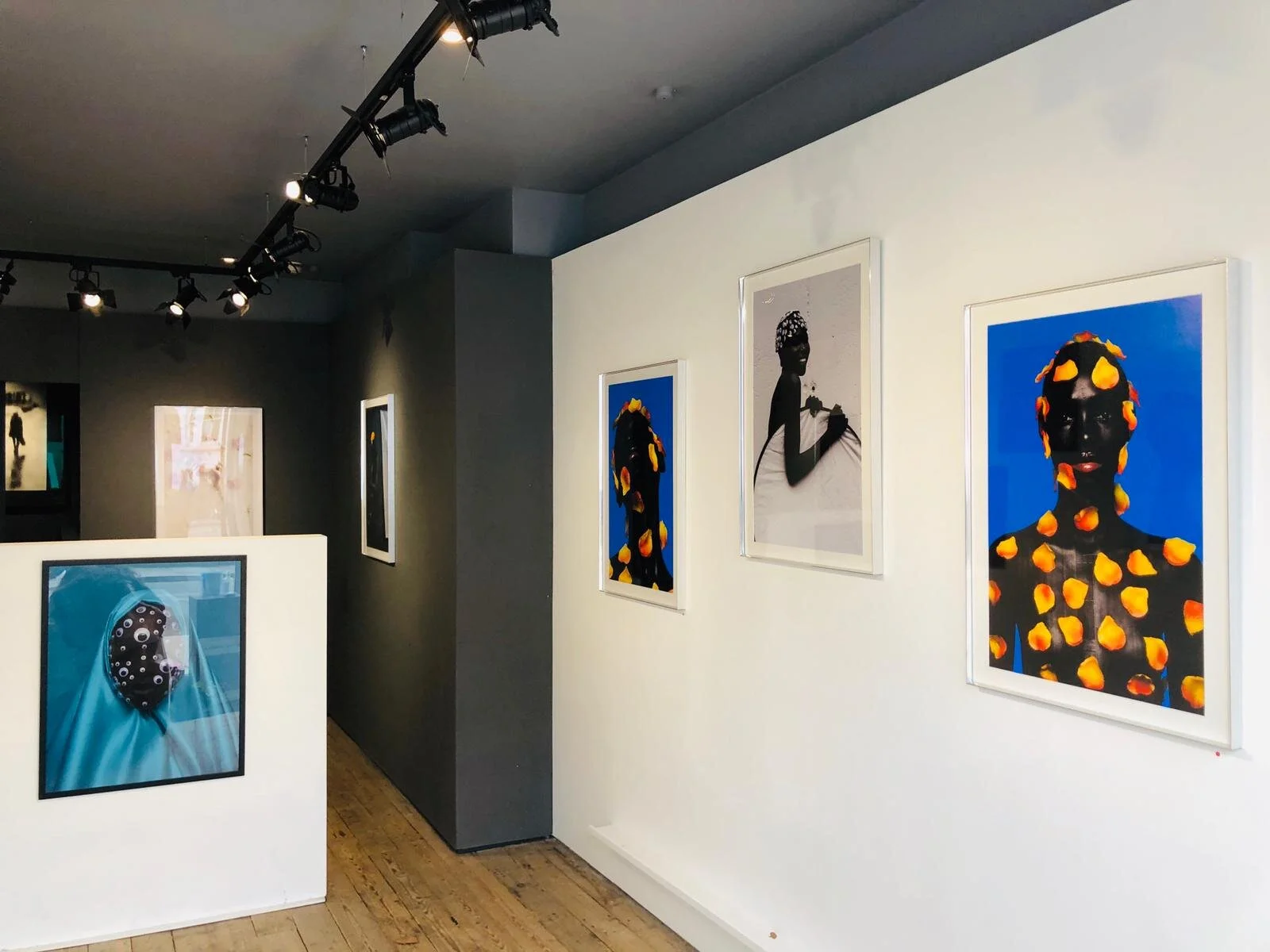Building a Career of Passion with Sofia Carreira-Wham
Sofia Carreira-Wham
is a curator, art advisor, gallery owner, archaeological, writer and ‘art-repeneur,’ living and working in London. With a background in Classics and the Heritage sector, Sofia turned to the contemporary art world using her education to develop a curatorial practice while supporting emerging artists. Sofia has been involved with MASK (Mobile Arts School Kenya), combining her passion with Imme Dattenberg-Doyle to found Doyle-Wham, a gallery focusing on Contemporary African Photography. Sofia talks to Alison Poon about developing a passion into a career, artist self-representation and her popular @artlife_london Instagram.
doylewham.com
INTERVIEW WITH SOFIA CARREIRA-WHAM
Puleng Mongale
Heaven on Earth, New Art City, 2021
installation view
Alison: Your background is in Classics but now you are more involved within the Contemporary and Emerging Art scene, how did this change occur and how have you found this transition?
Sofia: I was drawn to studying Classics because of its inherent breadth. I was grateful not to have to choose between literature and art, and being able to develop my linguistic skills (you never know when Latin and Ancient Greek will come in handy!) alongside visual analysis. I feel exactly the same way about contemporary art, a field that is by definition expansive, and where boundaries are constantly being teased, tested and torn down.
When it came to graduation, I was really unsure of what to pursue next (although I knew it wouldn’t be a corporate career). After a somewhat agonizing period of introspection, I tentatively decided to try and turn my primary passion and hobby - visiting exhibitions and exploring art - into a career. And from day one I was hooked!
Particularly as I live in London and am lucky enough to travel regularly, the contemporary art scene is unrivalled for exhibitions and events. There’s not only this constant stimulation, but the sense of being part of an evolving landscape in which you can play a formative role. Whether you’re an artist, collector, curator, writer, blogger, designer, etc. - your contributions are impactful.
These days, despite focusing mostly on the contemporary, I still keep up with developments in the ancient world (as oxymoronic as this might sound!) and I write a regular column on archaeological news for the print magazine Antiqvvs.
Alison: After working within galleries and collections you chose to open your own, Doyle Wham. What was the motivation behind this and what are the benefits of working for your own gallery?
Sofia: Although the past year has had a crushing impact on art and culture in so many ways, the proliferation of digital initiatives and art-repreneurship has simultaneously been inspiring. I used to think that launching my own gallery would be unfeasible or naive without significant finances and a physical space, but last year I took the plunge (or in other words, got a Squarespace website).
Exhibition at Maasai Village, 2006
In terms of my motivation, I believe accessibility is key. In spite of working in the art industry for years, I still sometimes feel intimidated entering gallery spaces, and I’m saddened by how often I hear people dismiss contemporary art as performative, incomprehensible, or simply ‘not for them’. I see Doyle Wham as an opportunity to address some of these issues, and a way to hopefully communicate the joyful, emancipatory impact art can have on everyday life to broader audiences.
I’m also excited by the creative potential in collaborations, from pop-up installations in cafes (also, incidentally, a great way to show art during lockdowns), to exploring innovative digital exhibition platforms such as the fantastic New Art City, who I worked with most recently on an immersive solo show of South African artist, Puleng Mongale.
I would one day love to run a mixed-arts space that could encompass art alongside film, music and all sorts of experimental programming. It would fundamentally be designed with relaxation and enjoyment in mind - I just need someone to lend me a building!
Alison: Doyle Wham’s focus is Contemporary African Photography, how did you get into this field?
Sofia: The impetus to launch Doyle Wham emerged from an exhibition that my friend Imme (the Doyle to my Wham) and I curated in summer 2020, featuring artists from Afrikan Gallery, a photography platform and blog that she runs, and MASK (Mobile Art School Kenya), a creativity education charity that I work closely with. It was already an area of joint interest and specialization, but the gallery really developed out of these relationships. We have since continued expanding by inviting artists whose work we admire to join us - going from being Instagram-fans to exhibiting and selling their work.
In terms of the field itself, while London is considered a key hub of the international African art scene, there is no other dedicated space for contemporary photography and it’s exciting to be expanding that market on a local level.
Curatorially, photographic images also speak to me more strongly than any other medium - I think it’s something to do with the unknowable balance between truth and artifice within each shot, combined with their unique ability to convey narrative and emotion.
Alison: How do you still engage with your academic background while maintaining all these projects?
Sofia: I love the process of research, and everything related to writing and editing - my childhood dream job was actually to become a proofreader. These activities satisfyingly feed into many aspects of my current work, while sparing me the unease I usually feel regarding the validity of my ideas in a formal academic setting.
Having said that, I had been eyeing up the MA in Contemporary Art Theory at Goldsmiths for years, and finally decided to take it on in 2020-2021. While the online learning format is a reduced experience in social terms, in other ways the slowing down of ‘normal life’ has opened up unprecedented space for me to consider the course material and potential areas of study. It’s also a fruitful way to redirect the existential apocalypse-angst I might otherwise be indulging in!
Alison: You have a strong following on your Instagram account @artlife_london, where you showcase various exhibitions you have seen and contemporary art goings-on. What do you think the importance of a strong Instagram account is for both curators and artists?
Sofia: I find that Instagram can have a powerful motivational impact. It encourages me to reflect on and research particular shows or artworks that have caught my eye, while the routine of posting on a daily(ish) basis is the closest I have ever come to journaling. If nothing else, my feed serves as an inspiring personal reminder of all the fantastic exhibitions and artists I’ve encountered so far, in a way that feels more intentional and long-lasting than my camera roll.
As a curator, Instagram can be both a resource for discovery and a testing ground, where you can experiment with your aesthetic style in a low-stakes manner. I can’t speak for the artist experience, although I sometimes wonder about the impact that incentivizing and privileging algorithmically-friendly art will have longer-term.
Alison: Studio Solutions is an art advisory platform aiming to help emerging artists present their work and get access to some professional tools normally provided by gallery representation. In the digital age with greater connectivity between artists, gallerists, and collectors through platforms such as Instagram, do you think there is a growing culture of artists trying to represent themselves?
Sofia: Absolutely! One of the most positive shifts of the digital age for artists has been the ability to directly reach audiences and clients around the world, without depending on an agent or intermediary to promote them.
Galleries do, however, support their artists in capacities beyond sales, and I noticed that without such representation or a studio manager, there weren’t many options for artists to access this sort of help or advice. An ex-colleague and I therefore started our artist advisory, Studio Solutions, in response to this, offering flexible and affordable one-off or part-time support in all areas of art management. Usually, after a period of initial training and setting up of best practice (in anything from artwork cataloguing and packing to web building and social media), our services are no longer needed and artists are even better placed to succeed in self-representation.





